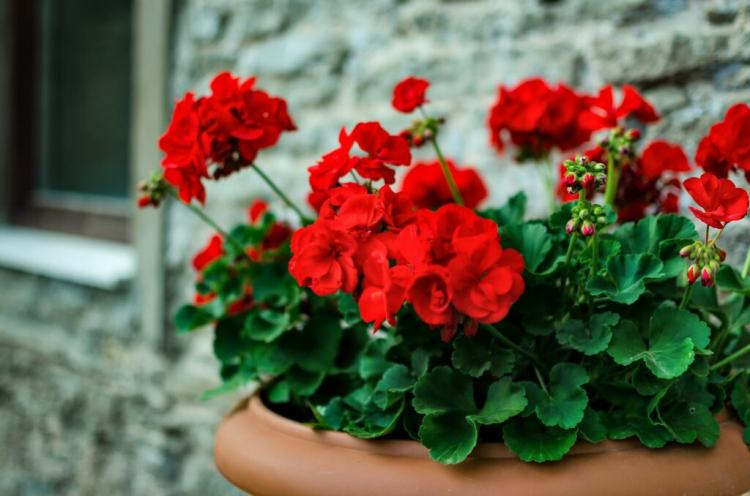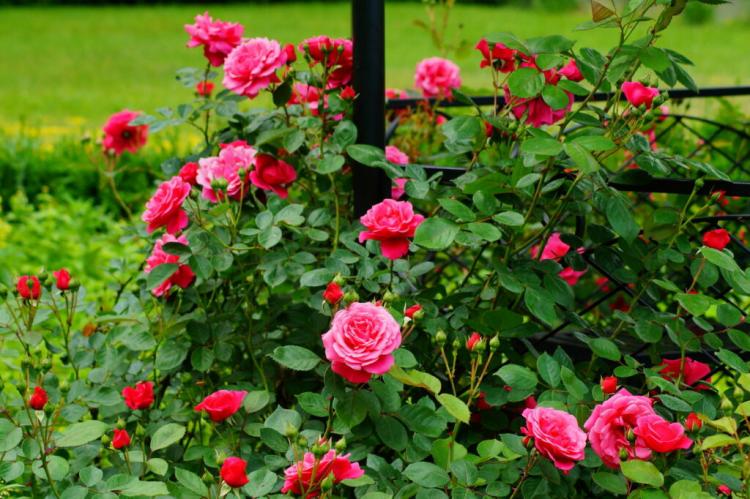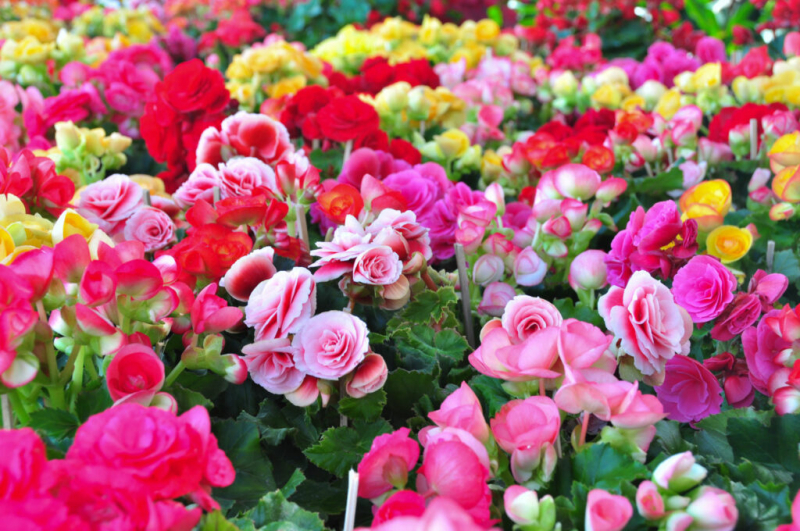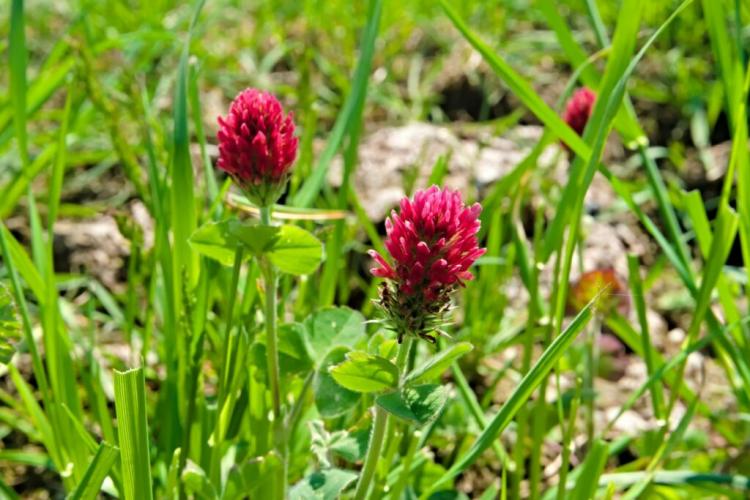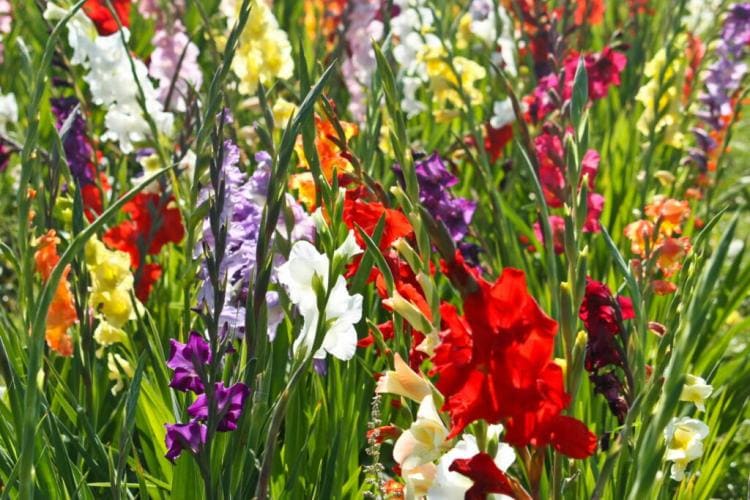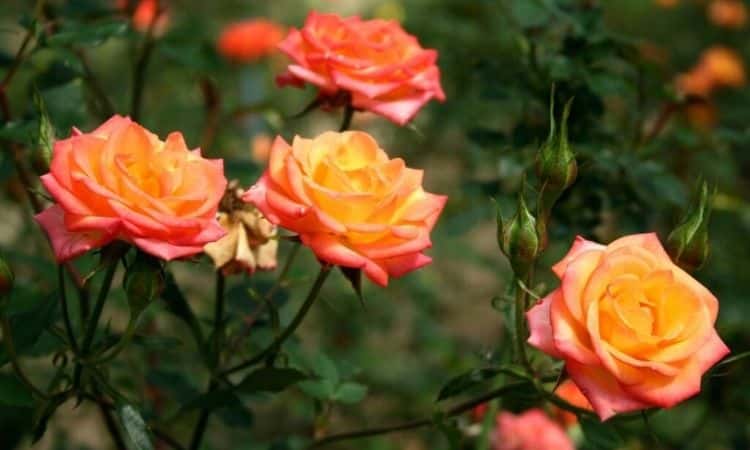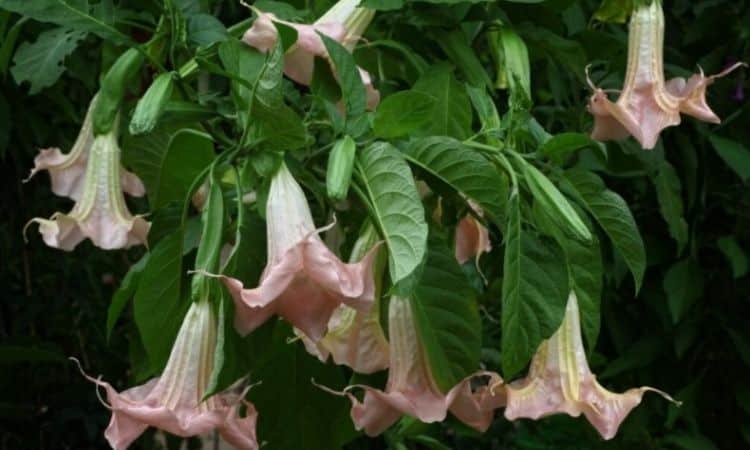Geranium: Location, Planting Time And Accompanying Plants
Here you can find out everything about planting standing and hanging geraniums, the optimal location, and the right accompanying plants. Geraniums or pelargonium, as the plant is called with its botanical name, with their sea of flowers are a real feast for the eyes for the balcony at home. This genus includes around 250 different wild species. Most of the species originally come from sunny South Africa. The perennial plants that are not hardy grow as subshrubs or shrubs at different heights. Intensive breeding has resulted in a large number of cultivars that not only impress with flowers in a wide variety of colors but also differ in their growth forms. The most important of these pelargonium species today are P. zonale hybrids and P. peltatum hybrids.
Geraniums Growth forms: Standing and hanging geraniums
Table of Contents
The growth habit of the geraniums influences the choice of the right location and planter. With the right choice, you support plant-based well-being and put your geraniums in the limelight. A general distinction is made between hanging geraniums ( Pelargonium peltatum hybrids) and upright geraniums ( Pelargonium zonal hybrids).
Standing geraniums
Upright geraniums are evergreen subshrubs and reach heights of 25 to 40 centimeters. They are unbeaten among the geraniums in terms of their variety. This group is ideally suited for balcony boxes and pots as well as planted in the bed. The noble geraniums ( Pelargonium grandiflorum ), also known as English geraniums, form a special group. They have numerous, impressive flowers, but they must be protected from rain.
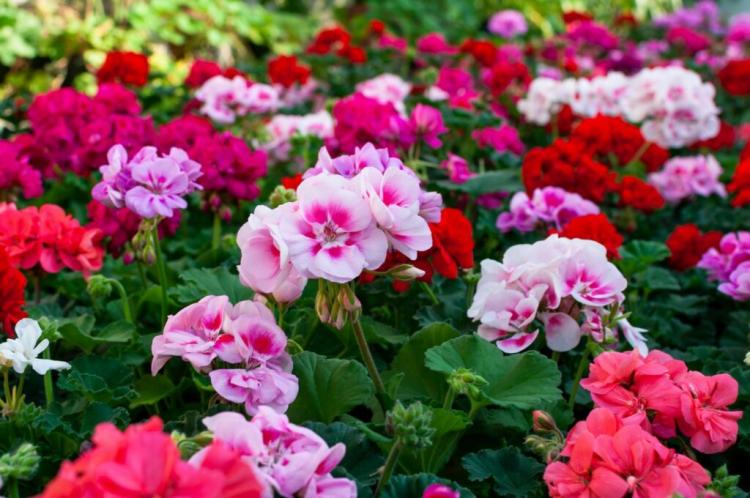
Hanging geraniums
Geraniums with a pendulous growth habit are usually up to 30 centimeters high and can form overhanging shoots over 150 cm long. These shoots make hanging geraniums a long-runner in balcony boxes, hanging baskets, or vertical gardens on the balcony. Robust, single-flowered varieties such as the ‘Cascade’ series or the well-known pink ‘Ville de Paris’ are particularly popular.
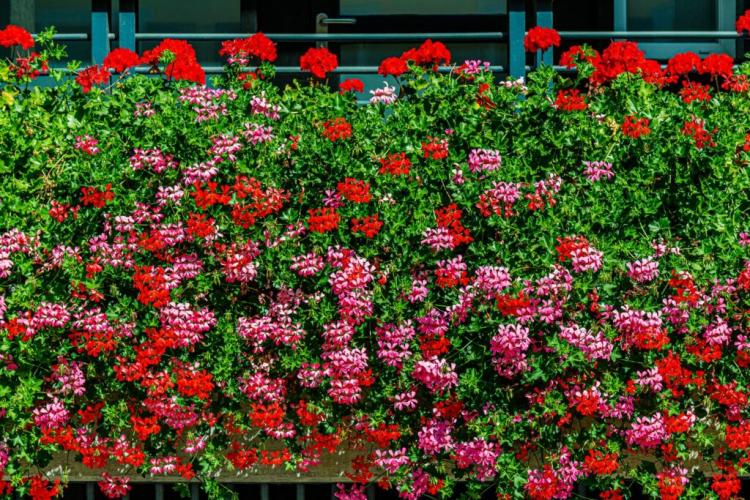
Scented geraniums – possible uses for geraniol
The fragrant geraniums form a special group of geraniums. With scented geraniums, it is not the eye that chooses, but the nose. Countless variations surprise with special flavors, such as ‘Chocolate Peppermint’ (chocolate) or ‘Purple Unique’ (wine gum). Here the ornamental value counts less than the possible uses of their leaf extract.
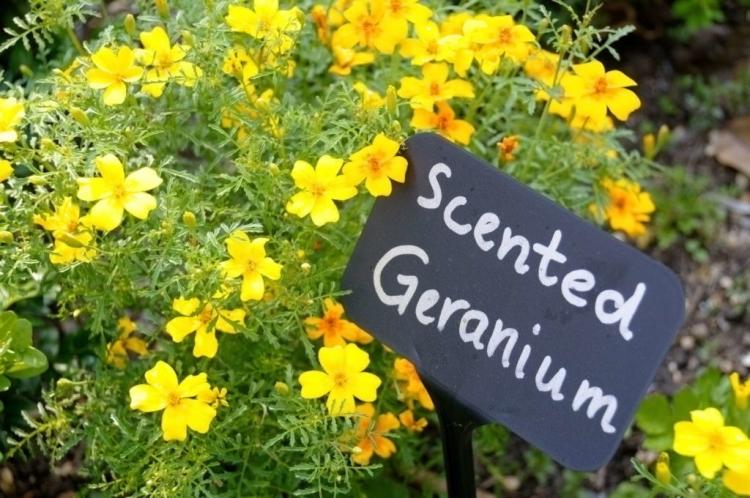
The geranium oil (geraniol) of certain types is used in perfumes, cosmetics, aromatherapy and has a relaxing effect on the muscles. Some fragrant geraniums are said to even deter mosquitoes with the help of their spicy aroma. The plants are therefore not only beautiful to look at, but can even score with practical added value.
Geraniums: the ideal location
As their African roots suggest, pelargoniums are true friends of the sun and prefer a warm and full sun to a partially shaded location. With noble geraniums, however, the following applies: if possible without full sun. A light breeze does not harm the plants, but the shoots can break easily in stronger winds. With hanging geraniums, there is a quick risk that the flowers will stick together when it rains continuously, so you should choose a covered location. For geraniums to bloom continuously until frost, they need cooler nights. To ensure that the number of flowers is correct, the following applies: the more hours of sunshine, the more flowers are formed.
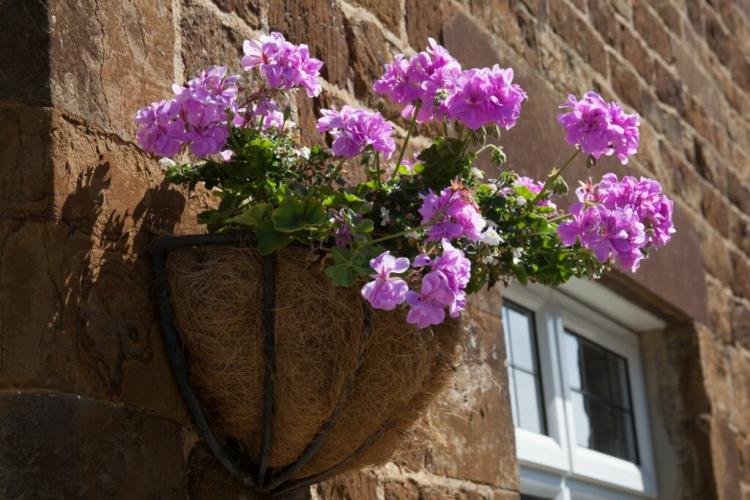
Summary: The optimal location for geraniums
- warm and full sun to a partially shaded location
- protect from strong winds
- Hanging geraniums: sheltered location
The right geranium soil
For the cultivation of the pelargonium, a nutrient-rich compost soil or high-quality, structurally stable plant soil is used. Special geranium soil can be used so that your geraniums feel good thanks to an optimal supply of nutrients. This is particularly nitrogen-focused.
You might so like: Lemongrass: A Touch Of Asia In Your Garden
Planting geraniums: in pots, buckets, and traffic lights
Geraniums are usually planted in pots, hanging baskets, and window boxes. Standing geranium varieties can also be planted directly in the bed. A large volume of soil is important for the development of geraniums. Large pots or large window boxes (20 x 100 centimeters) are particularly suitable. Up to five copies can be used here. The box should be at least 18 centimeters high so that an optimal fertilizer and water supply can be provided later. Planters for geraniums should have a water drainage hole or good drainage, e.g. expanded clay, because sun worshipers do not like wet feet at all.
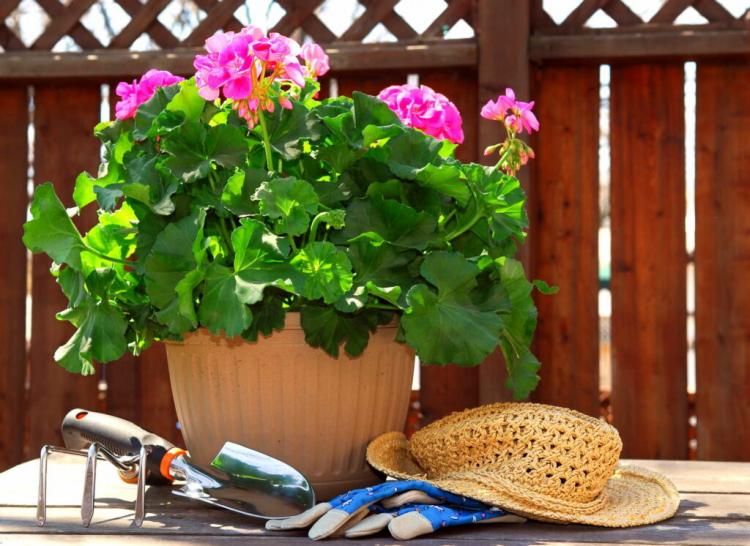
Hanging varieties should be planted in higher pots or boxes so that they can develop according to their growth characteristics. To make it easier for the hanging balcony plant to establish itself, it is an advantage to plant the plants at a slight angle in the box. However, the root balls must still have good substrate contact.
You May Also Like Fertilizing Geraniums
Summary: Demands on the geranium planter
- large pot or balcony box (20 x 100 cm) for ~ 5 plants
- Height at least 18 cm
- Water drainage holes or good drainage (e.g. expanded clay) to avoid waterlogging
- Plant hanging geraniums at an angle
Geraniums planting time and repotting
The plants are usually well rooted when bought in culture pots. For lush growth and a rich abundance of flowers, these therefore urgently need to be transplanted. It is important to open the root ring on the ball when planting. This makes it easier for the plants to take root in the fresh soil. Young geraniums are potted in larger planters when numerous roots emerge from the drainage hole and these begin to clog.
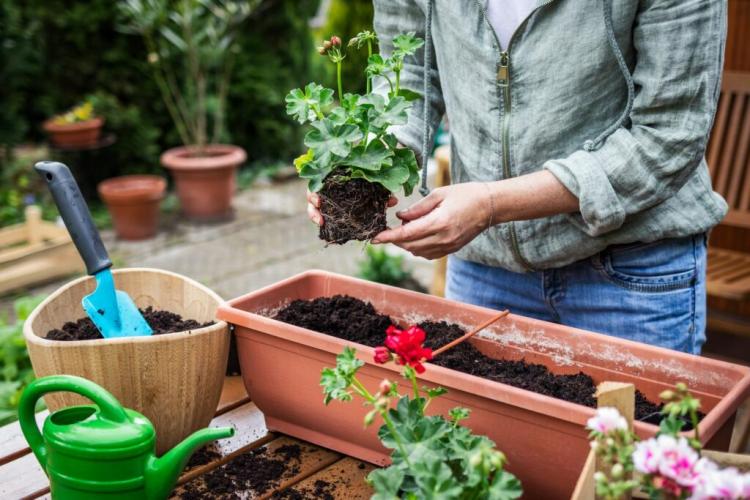
Older plants can be repotted in fresh soil about every 2 years. You carefully shake the old soil out of the roots and shorten the long, thicker roots and also the shoots of the plant by about half. Then you put the pelargoniums prepared in this way back into the old, well-cleaned pot with fresh soil. You can use the cut shoots as cuttings to propagate your geraniums.
You might so like: Passion Flower (Passiflora): How Care Of The Beautiful Plant
The best time to repot is spring. In general, however, the pelargoniums can also be repotted during the rest of the year.
From the end of February, the plants, which have been reported in fresh soil, can grow in a bright, cool window seat. In cold regions, geraniums are only planted in good balcony flowers or geranium soil from mid-May. Do not put noble geraniums outdoors until warm days are guaranteed.
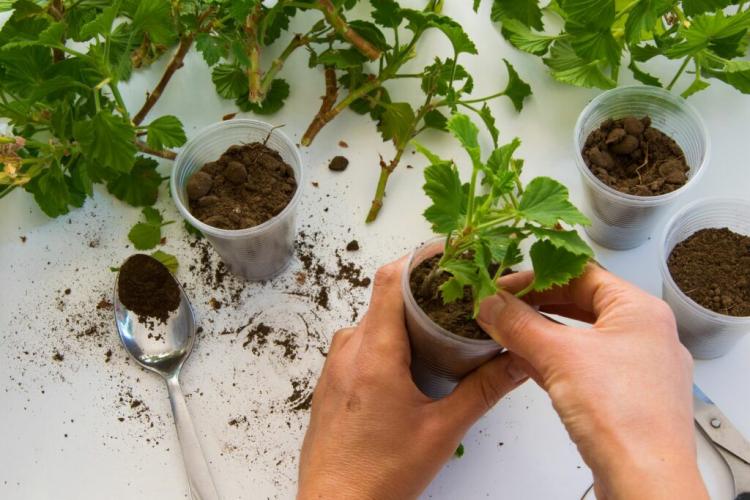
Summary: planting time and repotting geraniums
- Repot geraniums after purchase
- young geraniums: repot when the planter is completely rooted
- older geraniums: repot every 2 years
- best time to repot: spring, but generally possible all year round
- Plant outside from mid-May
Geraniums as house plants
Geraniums feel at home in the heated room. If the plants are properly cared for, you can enjoy their numerous flowers in a large pot on the sunny windowsill for most of the year. We have put together for you what needs to be done so that the geraniums are cared for correctly and the plants feel good all year round.
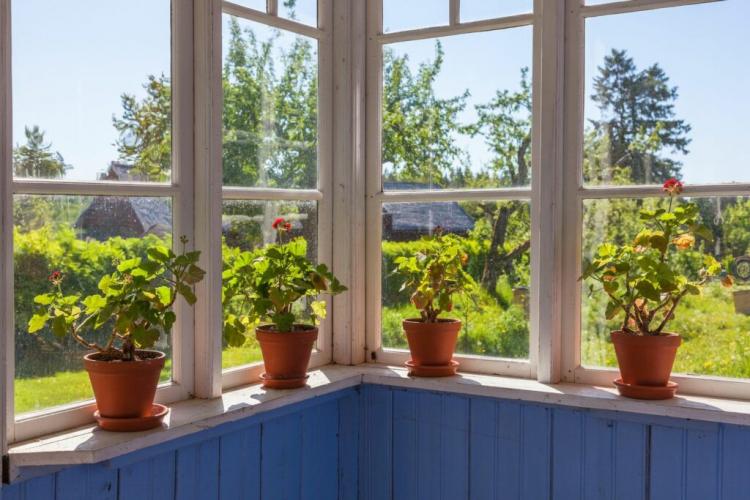
Geranium companion plants
The balcony classic can be combined alone and with almost all sun-loving balcony flowers. It is only important that the vigor and the water requirements match those of the partners in the box or planter. Examples of combinations are petunias, magic bells, Bidens, verbenas, magic snow, vanilla flower, lantana, hussar’s head, blue daisy, male loyalty, purslane florets.
